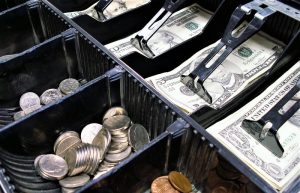Monopsony
Monopsony is also known within the field of economics as the buyer's monopoly. The word is derived from the Greek word mono, which means unique, and psoniums which means purchase. This is a type of market in which we can see a single buyer and not a large number of them. This is one of the reasons that makes this type of monopoly imperfect and full of problems.
What is monopsony?
Monopsony is a structure within the market in which there is a single plaintiff or a single buyer, contrary to the bidders, as there may be one or several of them. Therefore, this type of market is considered imperfect competition. It does not have a great balance and therefore lacks perfection.
It is the plaintiff who is responsible all the time for setting the prices for the goods or services that are offered because he is the one who has the power within the market, and the bidders are forced to adapt to the demands that he presents. Because of this, the buyer manages to have a greater value in the transactions he carries out. Monopsony is a condition within the market where the absolute demand for a product is exercised then, by a single buyer. It usually occurs when there are some production factors that demand certain type of specialized work, or with raw materials and goods in process.
Characteristics of monopsony
- It is a marketing structure in which there is a single plaintiff and a single buyer.
- It has different types of bidders to make purchase offers.
- It is a type of market catalogued as very imperfect, and sometimes full of problems between buyers and sellers.
- The sole plaintiff is faced with a positive supply curve, so he can place quite high prices depending on the product he offers.
- n this type of market you can buy as many products as you want at the current price without being able to influence the price already established.
- Another important feature is that the greater the elasticity of the supply of a given product, the lower its ability to affect the price.
- There is a fairly close relationship between monopoly and monopsony because a monopoly company will easily become the sole buyer of many products, mainly products such as raw materials, semi-processed products and other inputs.
Advantages of monopsony
- The greater the elasticity within the supply, the less capacity it has to affect the product price.
- The plaintiff, being the only one, may fix its price in the market, which is why it may take over part of the bidder’s
- It can exert a great control over the market and can depress the prices of products in order to obtain extraordinary profits.
- Prices, demands and needs will be dictated and regulated by the buyer.
Disadvantages of monopsony
- Monopsony generates inefficiency within the market because the demand quantity and price are below equilibrium in a perfectly competitive market.
- A buyer’s demand curve has a negative slope because as more units are consumed, the valuation given to them is lower.
- When a monopsonist wants to buy an additional unit, he must increase the price not only of that item, but also of those he already owns.
- Monopsonists can buy as much as they want at the prevailing price, without being able to influence it.
- Monopsonist types only occur in relatively small local markets or in circumstances where governments intervene.
Examples
An example of monopsony can be found in Japan. Manufacturers of car seats have a small number of buyers, there are very few Japanese car assembly companies, so they can control quantities and prices of car seats, as they are the only buyers in the country of this product.
In Northwest Europe, it can be observed that food can only be obtained by 4 or 5 large supermarkets chains. In all the countries throughout Europe, the common thing is to observe big chains that sell products of basic basket, extending their branches towards electronic products, clothes, medicines, books and toys among others.
Many companies in China, with thousands of employees, work hard to keep the shelves full of products in big chains like Walmart.
In Sweden, for example, minority producers have had to sell their products through a larger chain of supermarkets in order to distribute them, considering that supermarkets can buy their goods anywhere in the world.
How to cite this article?
Briceño V., Gabriela. (2019). Monopsony. Recovered on 4 January, 2025, de Euston96: https://www.euston96.com/en/monopsony/










